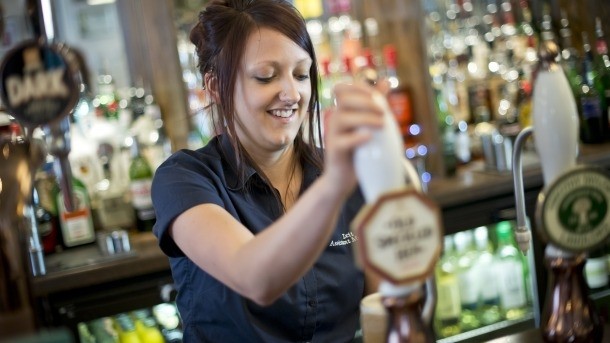Legislation
Top tips for licensees on dealing with the National Living Wage

Rethinking staff rotas
Start with a blank sheet of paper and consider every session of every day. Don’t think of current individuals; think in terms of start times. For instance, should the cleaner be servicing tables when this should have been done the night before? Should lunchtime bar staff be doing prep work that should have already been completed?
Stagger start and finish times – do your staff all need to arrive at the same time? The effect of just minutes of time saving per day can reduce payroll costs by hundreds of pounds per year.
Monitoring clock in/out times – by policing clocking in and out times against the rota you can reduce your wage bill. Staff signing in earlier, or clocking off later, than they had been rostered for – these small pockets of unscheduled paid time all add up.
Limiting paid time allowed for clear down – Parkinson’s Law says “work expands so as to fill the time available for its completion”. At the end of the night, there are those that will take far longer than is really necessary. Putting a reasonable deadline against ‘paid for’ close down procedures will usually increase productivity.
Source: DRJ Accountants / Ali Carter
Easy wins on profitability
Where can pubs make easy wins when it comes to reducing costs and increasing profitability? Pub mentor and former BII Licensee of the Year Ali Carter gives her top tips:
I’m currently working with some licensees who are making three classic mistakes:
- Guessing food costs and not working to portioned controlled dish specs. By introducing accurate dish costing and menu management you can usually increase food margins (without a price increase) by 5%. This means in a pub with a £1,500 net weekly food turnover this equates to £75 per week – or 150 man-hours at the difference between minimum wage and NLW.
- Holding drinks retail prices when there is an increase from the brewery or pubco for fear of the competition being cheaper – this simply erodes margins and puts the squeeze on paying overheads including the wage bill.
- Failing to renegotiate supplier costs – particularly with utilities and food suppliers. So many time starved licensees fail to make time to continually look for new deals which can save them cash.
How can pubs increase staff productivity to help boost sales?
Creating a company set of values that the team fully understand and buy into, so they really appreciate that their work is not just a ‘wage packet’ but an important contribution to a bigger picture. Offering a profit share bonus for up-selling extras or hitting gross profit targets.
What other steps can generally increase profitability?
- A well merchandised back bar to draw the customers eye to the products - with the highest margins - that you want to sell the most of.
- Train staff to pour the most profitable products when a customer isn’t fussed about which brand they consume.
- Laying out the menu to influence customer’s food selection to the most profitable lines and getting staff to recommend certain dishes that are high profit.







